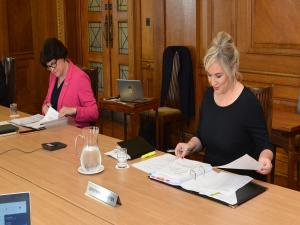
By David Young and Rebecca Black, PA
Stormont’s leaders have defended new lockdown measures for Northern Ireland in the face of a furious backlash from businesses.
First Minister Arlene Foster and Deputy First Minister Michelle O’Neill confirmed the imposition of a strict two-week circuit break that will see non-essential retail outlets added to a closure list that already includes much of the hospitality sector.
The strict clampdown, which is close to the severity of March’s lockdown with the exception that schools will remain open, will come into effect next Friday.
Despite highlighting the need for tough measures to prevent the health service being overwhelmed, the executive allowed several relaxations that were agreed last week to go ahead on Friday, with coffee shops and close-contact services such as hairdressers reopening.
Those business will be forced to close again next Friday when the ramped-up lockdown is introduced.
The latest announcement by the executive has been widely criticised by business representatives, who have accused the administration of mishandling the pandemic response and failing to provide sufficient financial support to help struggling firms.
The restrictions agreed by the executive late on Thursday are more severe than proposals that were vetoed by the DUP last week, prompting rivals to accused the party of a major U-turn.
The proposals tabled by Health Minister Robin Swann last week led to four days of bitter in-fighting among executive ministers, with the DUP pitted against the other four executive parties.
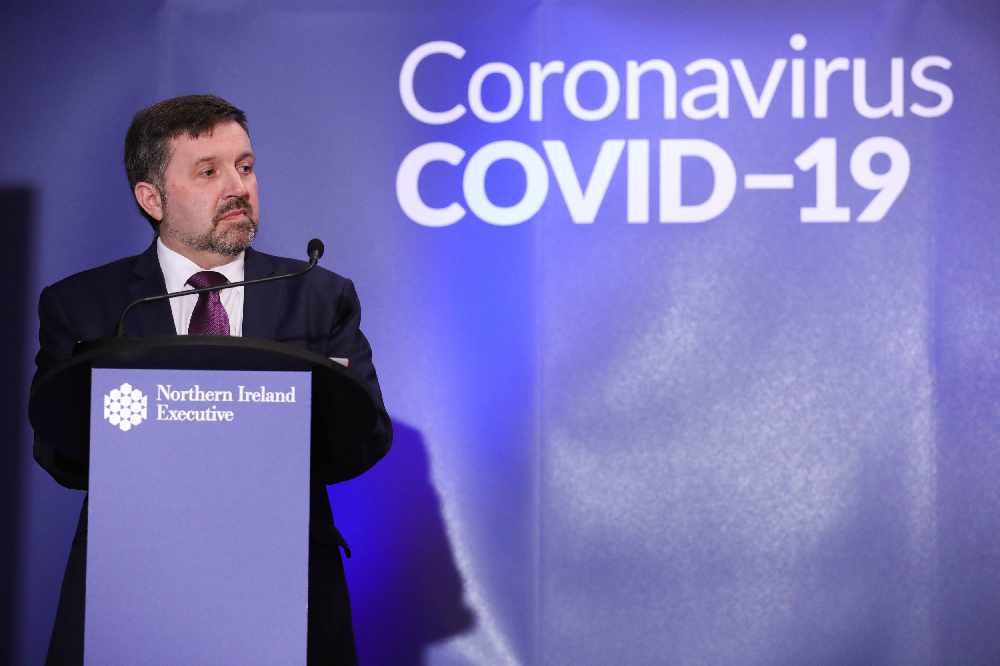
Health Minister Robin Swann
Mr Swann returned with proposals for even tougher restrictions at Thursday’s meeting, warning that if they were not implemented, not even a full lockdown in mid-December would save the region’s hospitals from being overwhelmed.
This time the DUP joined the other parties in supporting the steps.
On Friday, First Minister Arlene Foster justified her party’s change in stance, insisting it had responded to worsening medical and scientific evidence – namely a rise in the infection rate (R number) to above 1.
“Of course that causes us concern in terms of the transmission of the virus,” she said.
“The numbers are staying pretty static in relation to positive cases at present but when we look at our hospital numbers they are at their highest they have been, even when we look back to the first peak back in March/April time, the numbers in our hospitals reached I think around 350, now they’re at 450.
“Our health service staff are very tired, we understand that. So there was a need to put in these interventions.
“Certainly none of us wanted to do this. We realise the impact it will have, but it was necessary unfortunately to protect our health service for everybody else.”
Ms O’Neill said the decision was “difficult but right”.
Michelle O'Neill
She criticised the DUP-led department of the economy, claiming it was unnecessarily delaying the distribution of support funding. She said the executive needed to work through the weekend to pull together a new financial package for those businesses set to be hit by the latest measures.
“The executive needs to meet today, tomorrow, Sunday, Monday to get that money out the door,” she said.
Ms O’Neill added: “We had to take these difficult decisions but it came on the back of strong medical and scientific advice, and was necessary.
“So, I can say in terms of the anger that is felt by businesses, we share the concern, we share all that concern, we understand how difficult this is, how challenging this is.”
Ms O’Neill said she raised concerns with Mr Swann that businesses could open on Friday before having to close again next week.
The fact those businesses, and non-essential retailers, will be open next week before having to close has led to fears of a rush of shoppers.
“I believe that it is contradictory in a sense because you are telling the public, and rightly so, that they are in a very difficult position and health care workers and our health system is under huge pressure, and we need to intervene, but at the same time you’re allowing businesses to open this morning,” said Ms O’Neill.
“I put that to the Health Minister, very bluntly, very clearly, and was told they were content that this was OK, that this was factored into the modelling which they had brought in front of us.”
The deaths of a further 12 people with Covid-19 were confirmed in Northern Ireland on Friday, along with 369 new cases of the virus.
David Gough, owner of the Newton Brunch Bar in east Belfast, described the latest lockdown announcement as “devastating”.
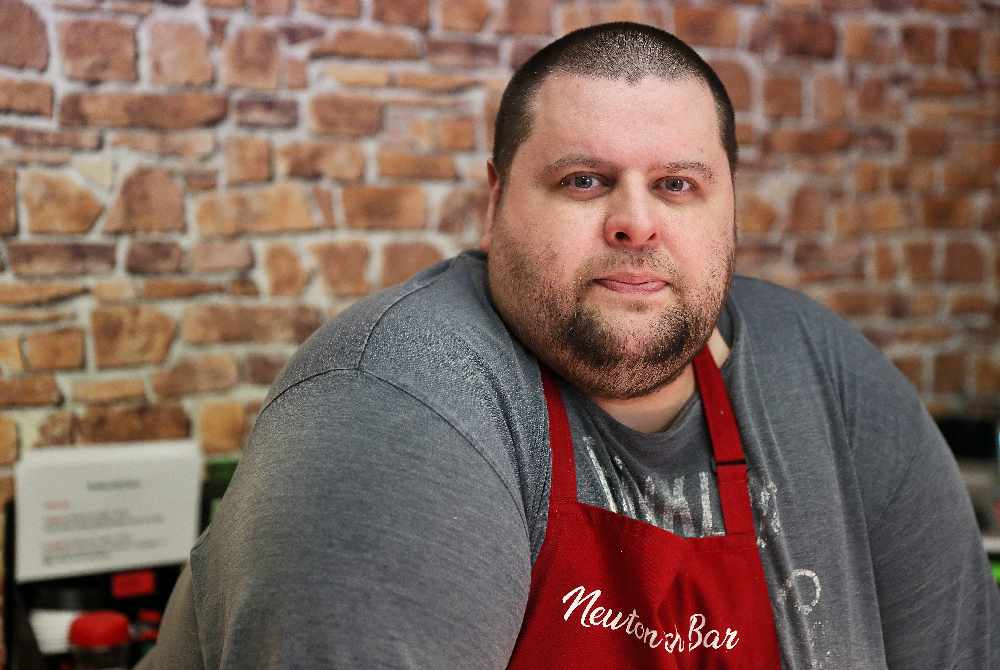
David Gough, owner of the Newton Brunch Bar in east Belfast, as many businesses, which were closed under a previous circuit break, reopened across Northern Ireland on Friday morning.
He said the “constant changing of the rules” is “killing businesses”, and urged Stormont to ensure financial support is paid out.
Chairman of the BMA’s Northern Ireland Council Dr Tom Black welcomed the decision but said it should have been taken five weeks ago.
He expressed relief that the executive was being “led by the science again” and had “made the right decision”.
“We need this lockdown if we are going to take the pressure off the hospitals. The hospitals are at breaking point,” he said.
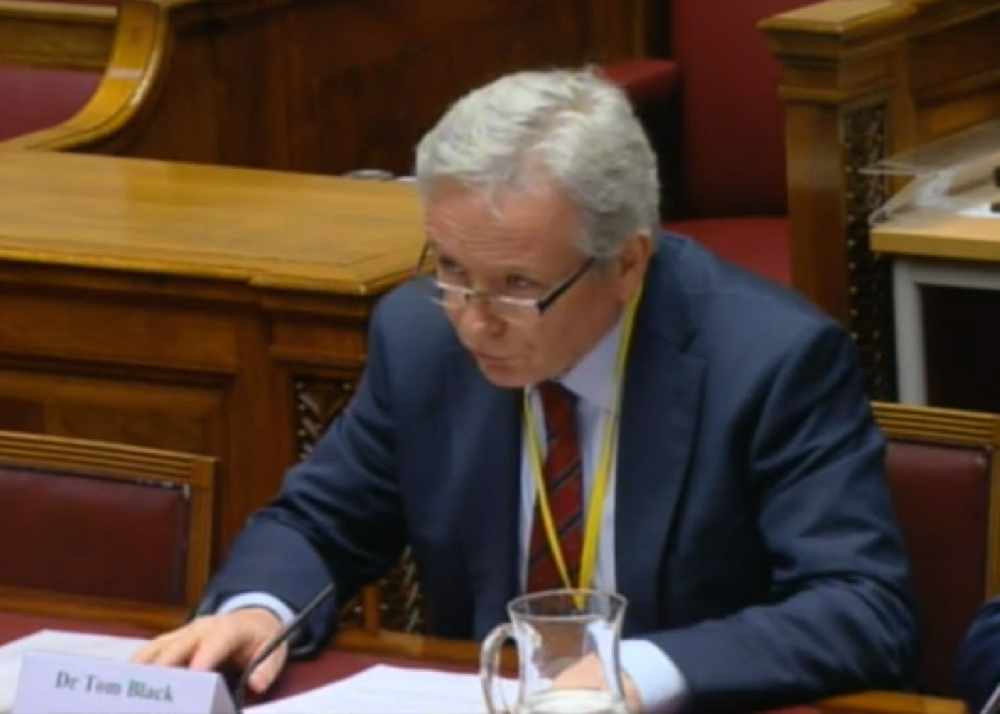
Dr Tom Black from the BMA
“The decision that was made five weeks ago was the wrong decision, it was not severe enough at the time and it needed to be taken earlier.
“We should have brought in more severe measures five weeks ago if we were going to stop this happening now. It’s happened, we have a lot of hard work to do.”


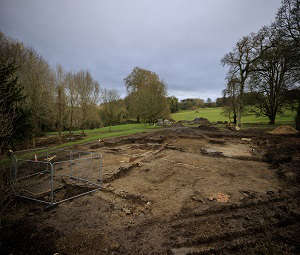 Remains of 300-year-old building complex unearthed by chance on country estate
Remains of 300-year-old building complex unearthed by chance on country estate
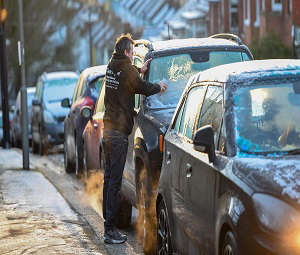 Fresh Met Office warning for icy conditions across Northern Ireland
Fresh Met Office warning for icy conditions across Northern Ireland
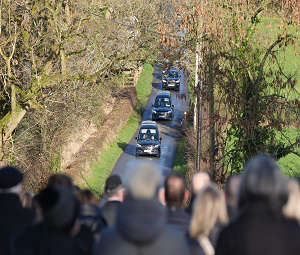 Community still in shock over deaths of father and son, funeral told
Community still in shock over deaths of father and son, funeral told
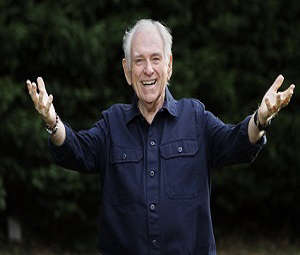 Hugo Duncan dedicates MBE honour to late mother who raised him on her own
Hugo Duncan dedicates MBE honour to late mother who raised him on her own
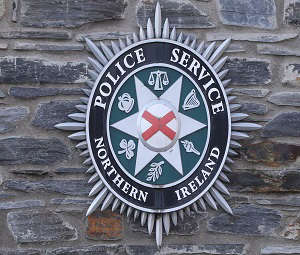 Police concern over large gathering of youths at Belfast interface
Police concern over large gathering of youths at Belfast interface